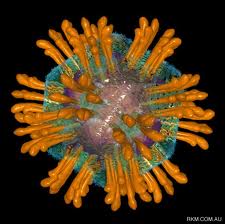A major breakthrough that may lead to the development of a new treatment for hepatitis C has been made by scientists at Trinity College Dublin, Ireland.
In Ireland, there are about 20,000 people infected with the virus that attacks the liver. This disease has drew more attention since the blood bank’s use of contaminated blood products. It is one of the most shameful episodes in the republic’s history. Most of those infected were women who received the anti-D product in the late 1970s and early 1990s to protect unborn babies. Other groups infected included people with haemophilia who received contaminated blood clotting products. Up to now, 188 people among 1,700 people known to have received blood or blood products contaminated with hepatitis C died.
Irish researchers have discovered a a mechanism which blood-borne virus uses to break the human immune system. The virus produces a protein called E2 switches off the ability of the body’s white cells to stimulate an immune response.
Scientists have found that a protein produced by the virus, called E2, switches off the ability of the body’s white cells to stimulate an immune response. When the E2 protein interacts with our white blood cells, it actually hits them and stops them from working.
This discovery is considered a hope for patients with hepatitis C. If scientists identify a way of reversing this inhibition, they are likely to produce new ways of treating hepatitis C virus by allowing the body’s immune response to do the work.

